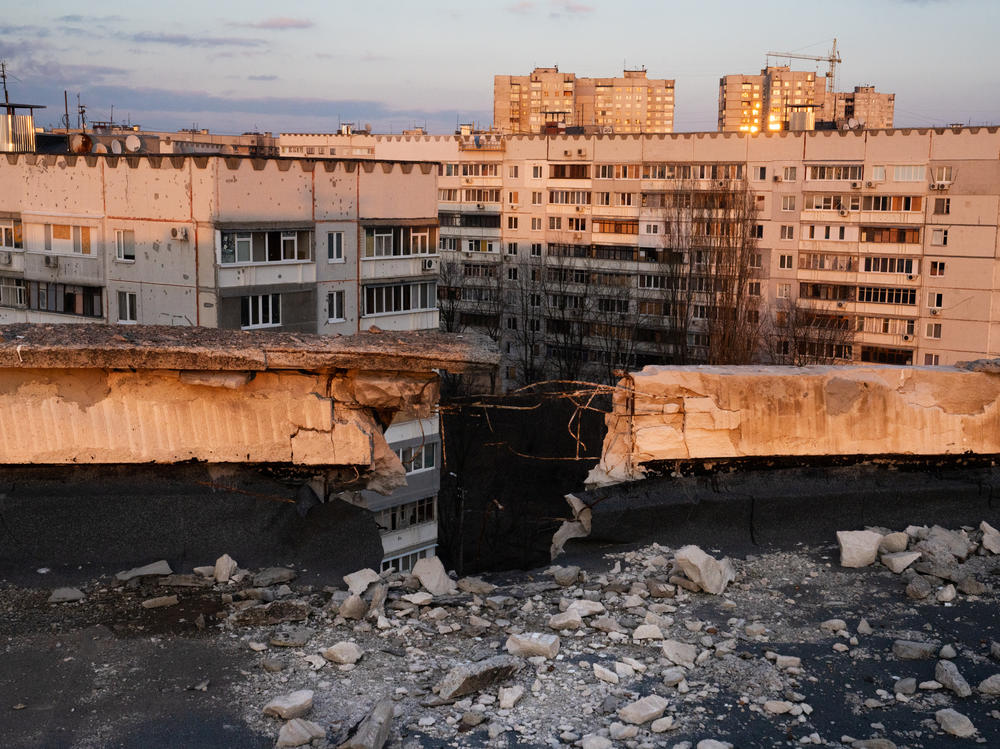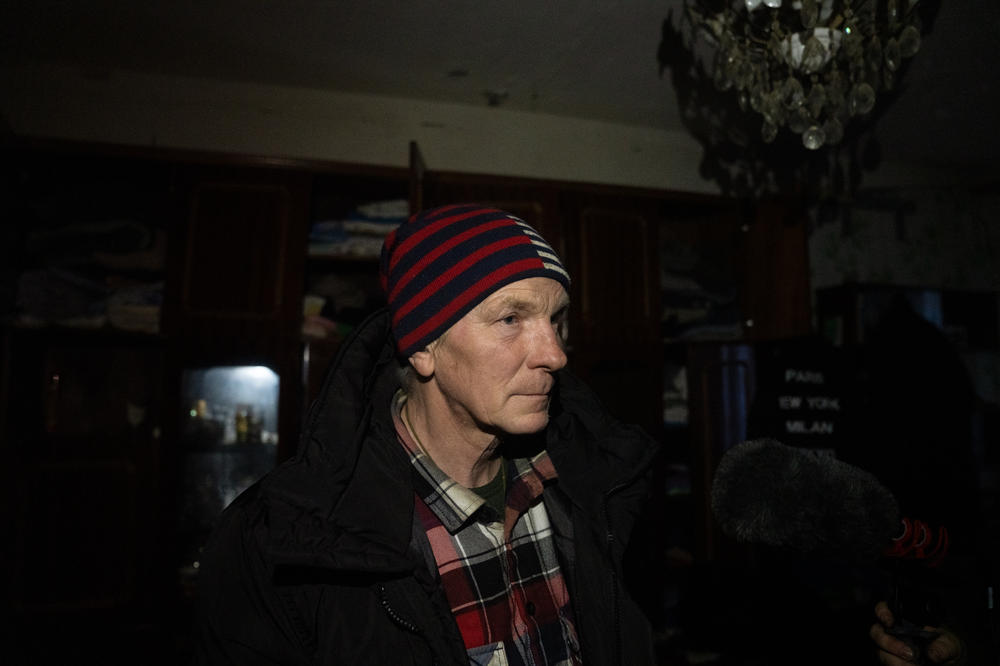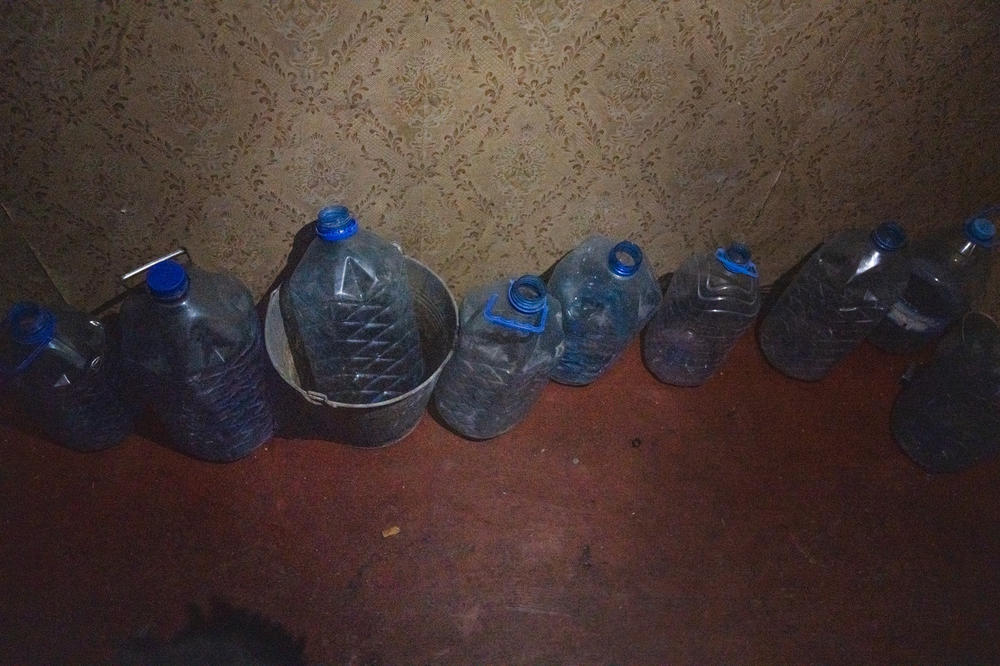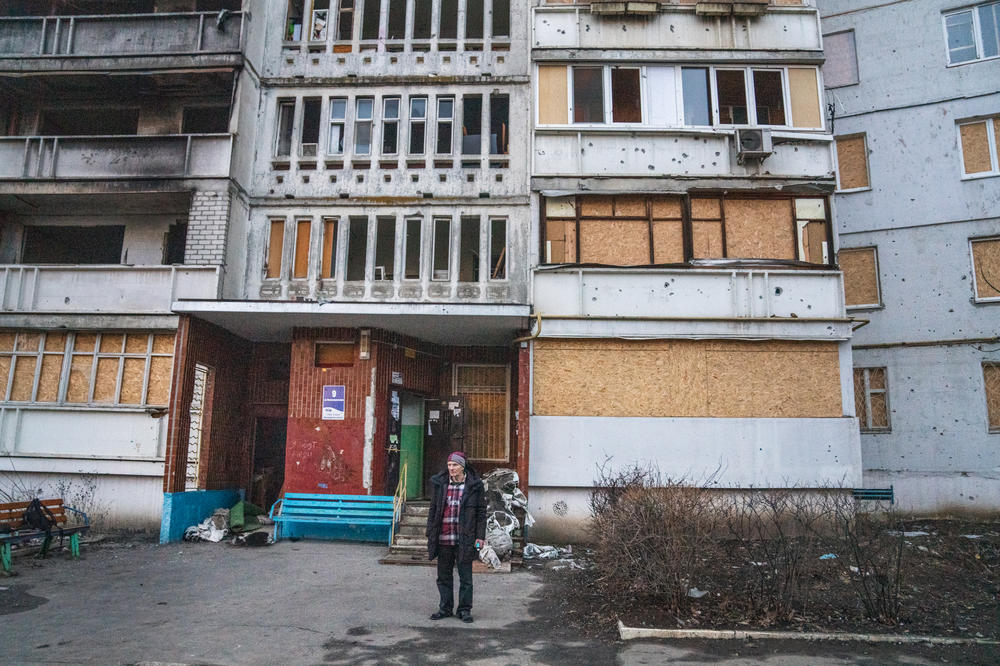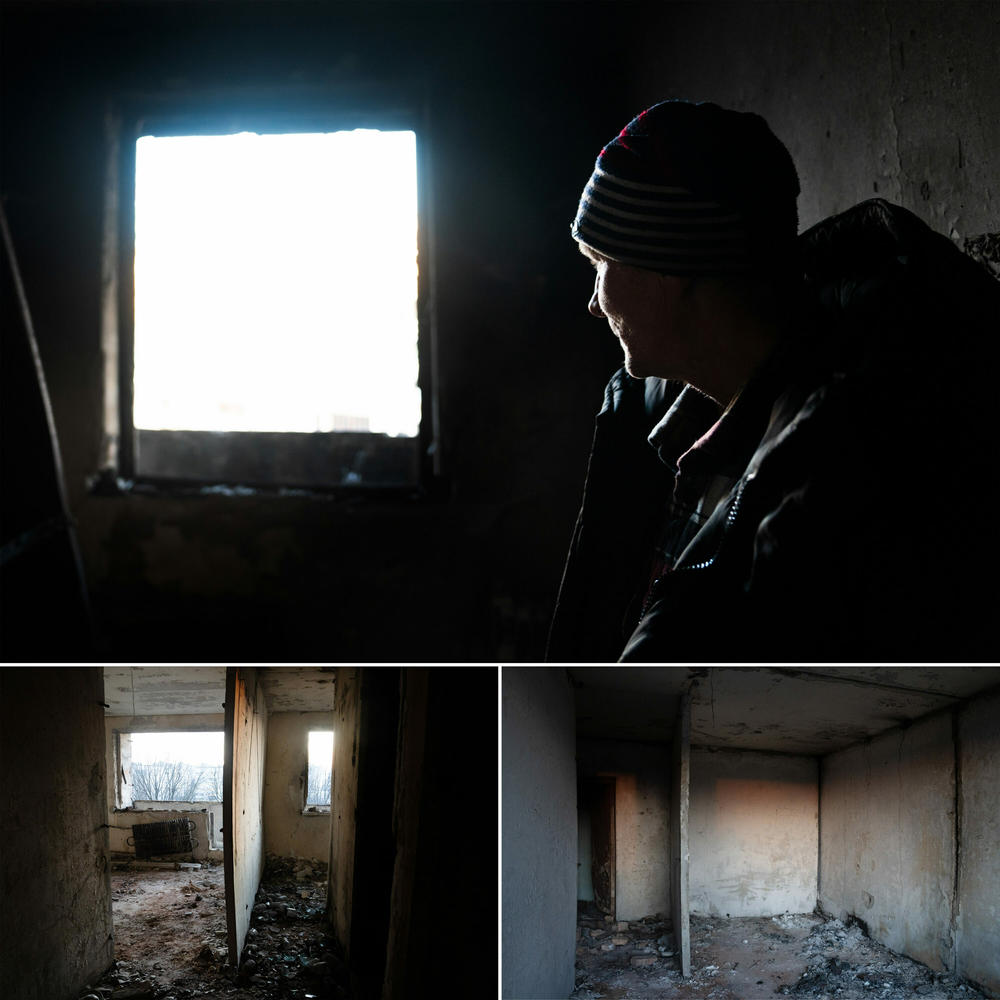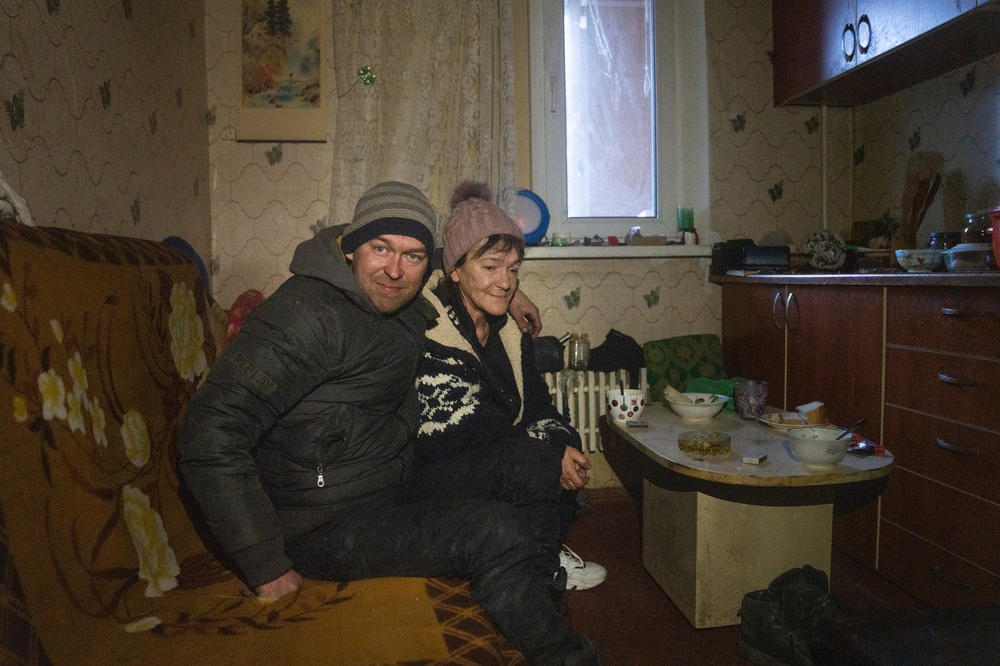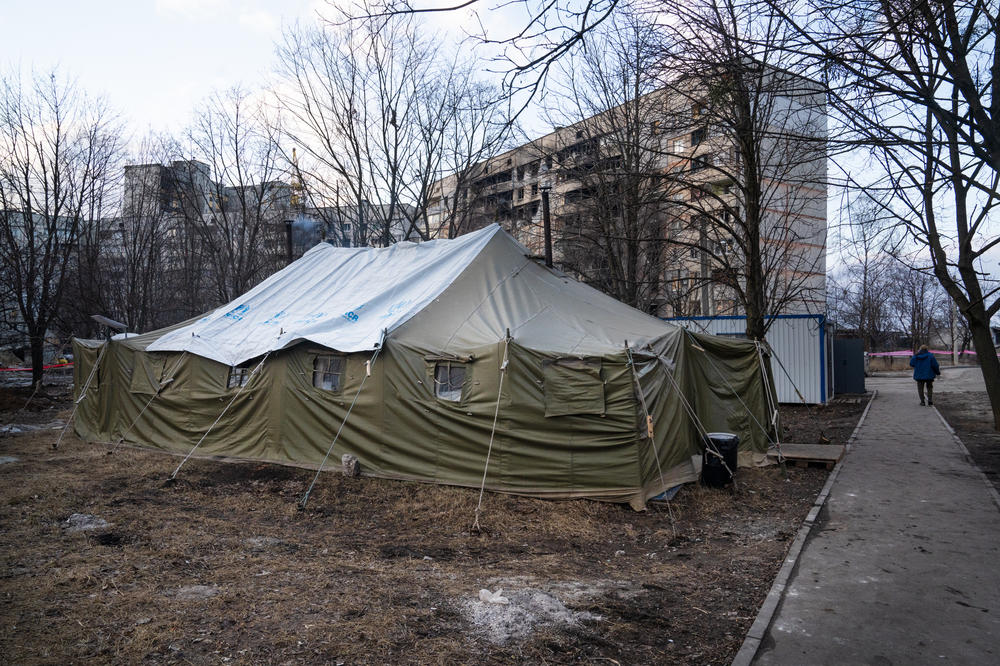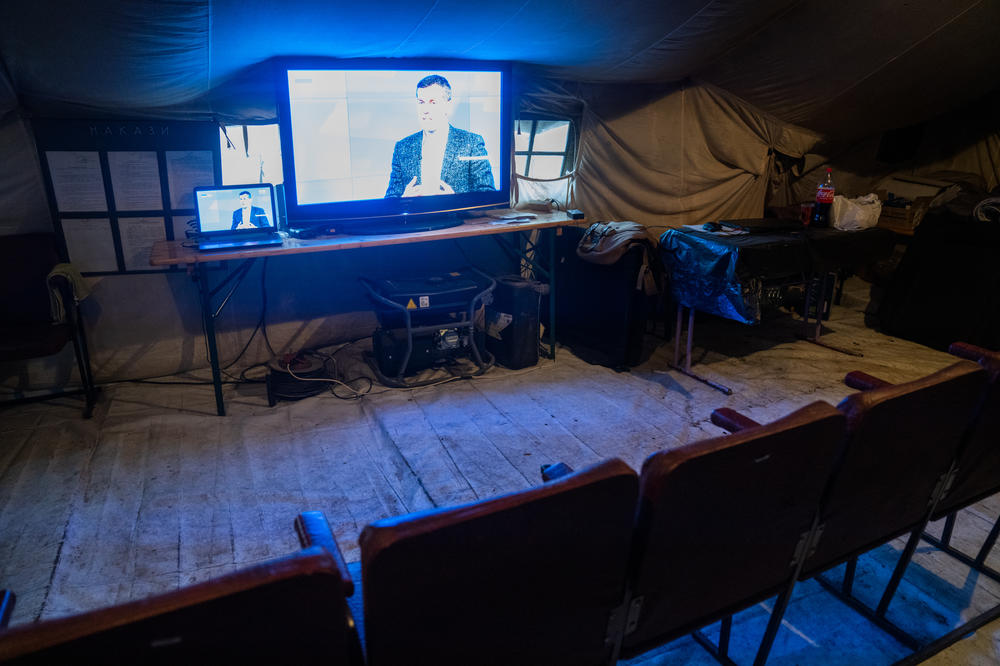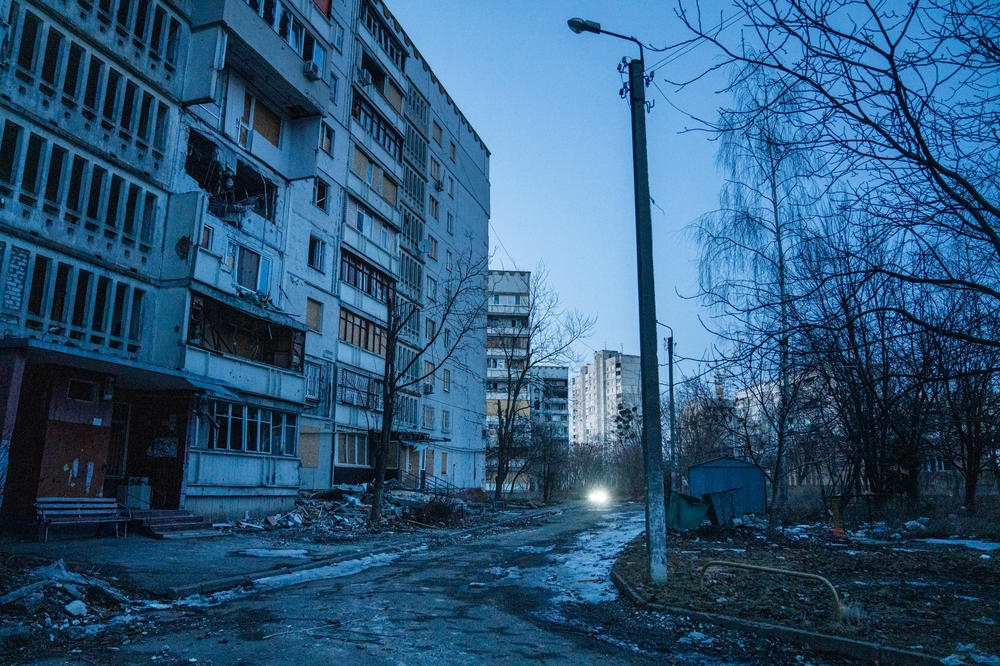Section Branding
Header Content
This Ukrainian widower's superpower is repairing the home he shared with his wife
Primary Content
KHARKIV, Ukraine — Before the full-scale Russian invasion 14 months ago, Ihor Dudnik lived in a tall, sensible high-rise in this eastern city's biggest neighborhood, Saltivka, once home to at least 400,000 people.
He and his wife, Inna, were close to many of their neighbors and often saw them at a sprawling market that was once one of the largest in Eastern Europe.
"Saltivka was always very busy, always buzzing with life," Dudnik says. "You never felt alone."
Then came the war. With Russia just 18 miles away, Russian soldiers bombed and shot at the neighborhood as they tried to occupy it, destroying most buildings.
Nearly everyone in the neighborhood fled. The 58-year-old builder did too, to temporary housing with Inna, who died of heart failure in December. Then he returned, alone, to his crushed home.
"Sitting at home doing nothing hurts me," he says. "So every day I fix something in this building."
Dudnik understands the enormity of his task. His building has gaping holes, burnt wiring, no water or electricity. Kharkiv's mayor says that Russian attacks have destroyed more than 6,000 buildings in the city, including many residential high-rises, and that local and national authorities have only managed to restore 200.
"If I fix a door or a window a day," Dudnik says, "I could make some progress."
His neighbors call him a superhero. "He's our builder, handyman, security guard, project manager, renovator," says Vitaly Gulden, a cheerful DJ and former hockey player whose apartment is on the fifth floor of Dudnik's building. "He's giving us hope this neighborhood will come back to life."
Gulden no longer lives in the building but he visits every week. On a recent day, Gulden walks through his old neighborhood, past a pile of rubble with toys and tufts of pink yarn peeking through and a partially restored playground with freshly painted seesaws. When he reaches his old apartment building, he shouts out for Dudnik. The phone signal is poor.
"Ihor! Ihor!" Gulden yells. "Where are you?"
Dudnik appears at a window which looks recently repaired. "Over here!"
Inside, Gulden climbs crumbling staircases, past gaping holes in walls. Dudnik meets him halfway. Without electricity, it's already dark so Dudnik navigates with a hand-crank flashlight which makes a clicking sound.
"What did you do today?" Gulden asks.
"Fixed a window, swept away some broken glass and rubble," Dudnik says. "I'm trying to fix some pipes too."
"Good man," Gulden says.
Dudnik's neighbors have donated tools and supplies so he can work. He stops at an apartment that looks like it's been punched by Godzilla. The walls look bent, and the floors are covered with broken glass, crushed ceramic tiles and bricks, and torn wires and power cords.
"My house," Dudnik says.
He points out the kitchen, the balcony where he and his wife used to drink coffee in the mornings, and the walls where they had hung family pictures. Only outlines of the frames remain. He points to the remains of a lamp, in the remains of the living room.
"My wife used to read here," he says, quietly.
The other side of the apartment is missing its front wall. There's a huge drop to the ground.
Dudnik says he lives, with permission, in a neighbor's apartment that is much less damaged. He sleeps on a couch in the kitchen, warmed by a wood stove. Tonight two friends — Natasha Slyusarenko and Denys Bezuglyy — are there, too. Their apartment building has collapsed, so they stay at different friends' homes every few weeks. They give Dudnik a box of cookies and make themselves some tea.
"There's still shelling in this area," Slyusarenko says. "They won't leave us alone."
"Ihor isn't scared, though," Bezuglyy says. "He keeps working."
Dudnik says he gets up at dawn to fetch water from a pump and well outside. Then he gets to work repairing a window or door. He also looks out for thieves who rummage through the building for valuables, including the new doors and pipes he puts in.
"At first I used to fight off looters on my own," he says. "Then I started calling the police — if I could get a signal."
His neighbors raised money to pay for a security door to keep out the thieves. Some prospective robbers still show up, posing as repairmen.
"I tell them I'm the repairman," Dudnik says.
He says he's not the only local repairing his home here. Earlier in the day, we met Ihor Shokum, a bearded cafe owner who is working to fix a less damaged building. He stays nearby in a tent run by the local emergency services.
"Little by little, we're trying to put Saltivka back together," Shokum said, sipping hot tea at the tent during a work break.
His wife, children and grandchildren are all abroad. He says the restoration work makes him feel useful during this war.
Back at Dudnik's apartment building, the visiting neighbors are saying goodbye. The sun is setting, and it's getting cold. They're all staying with friends in central Kharkiv, where there's power, water and warmth.
"If they came back here, it would feel like a victory," he says, sighing as they walk away.
He points to another shattered window. He plans to replace it in the morning.
Producer Polina Lytvynova contributed reporting to this story from Kharkiv.
Copyright 2023 NPR. To see more, visit https://www.npr.org.
